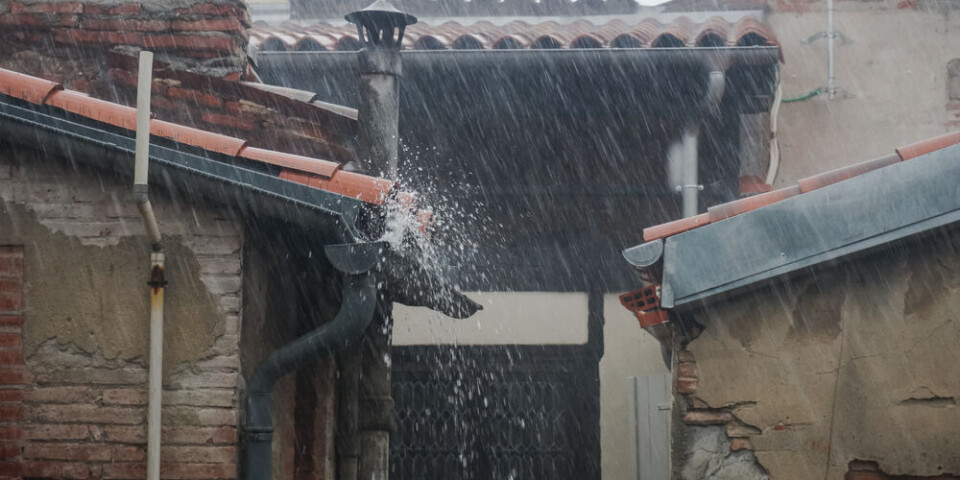How hospital charges work in France and what is and is not covered by the state
Those without a top-up mutuelle insurance can see significantly higher fees
A daily €20 charge for being hospitalised is not reimbursed by state health insurance
Gorodenkoff/Shutterstock
Key points: What patients have to pay
- A daily €20 charge known as the forfait hospitalier, which covers accommodation and laundry. This fee is not reimbursed by the state but is often covered by top-up insurance policies known as mutuelles.
- The costs of medical staff services, medicines, and equipment, which can reach up to €3,000 per day in intensive care. The state reimburses 80% of these costs, with the remaining typically covered by mutuelles, although some procedures incur an additional €24 charge.
- Patients without a mutuelle may face higher fees, as many items under 'hospitalisation fees' are not capped at €24. However, dépassements d’honoraires (fees above standard rates) are rare in hospitals unless a doctor performs a private operation.
- The tiers payant system in state hospitals and approved clinics means patients do not need to pay the state-reimbursed portion upfront. This system is gradually extending to other establishments, easing the financial burden on patients.
- For those eligible, hospitalisation at home is an option that provides regular professional care without the daily forfait charge, aiming to reduce hospital pressure. The reimbursement for this service is the same as for traditional hospital stays.
Hospital fees in a public hospital or a clinique privée conventionnée (private clinic that has signed an agreement with the state) include several elements in France.
These are:
1. A daily €20 charge towards accommodation, laundry etc called the forfait hospitalier. It is not state-reimbursed but most mutuelles (top-up insurances) cover it as part of their policy.
2. frais d’hospitalisation. This is a bill for services of the hospital’s medical staff and costs of medicine and equipment. They vary by hospital and department and can mount up to as much as €3,000 a day in intensive care.
These are state-reimbursed at 80% (the rest usually but not always by mutuelle payments), although certain specific procedures with a tariff of at least €120 individually are charged to the patient at €24 (this is only charged once if there are several of them.
Cover at 100% for the frais d’hospitalisation start after 30 days’ hospitalisation or earlier in certain cases such as treatment for an ALD.
3. Fees for additional comforts, such as a private room or TV.
Patients without a mutuelle face high fees
Féreuze Aziza, an adviser at France Assos Santé, a body representing patients, said many of the items totted up under ‘hospitalisation fees’ do not come under the category of being charged at €24 to the patient, so this can lead to issues notably for patients without a top-up insurance.
Ms Aziza said dépassements d’honoraires (fees charged above the standard rates) are not usually an issue in hospitals and are rare, apart from where a hospital doctor is performing an operation on a private basis – and he or she should always specify if this is the case.
In state hospitals and approved private clinics the tiers payant system operates, ie. you do not have to advance upfront the state-reimbursed part of your care.
For remaining elements you would formerly be given a bill to pay on leaving hospital, however now in state hospitals you do not need to pay the part covered by your mutuelle.
This is gradually being extended to other establishments.
There is an option called hospitalisation à domicile (hospitalisation at home) that can be suitable to some healthcare conditions.
It involves a high-level of regular care from visiting professionals while you stay in your own home, and aims at reducing pressure on hospitals.
Reimbursement is the same as for hospitals apart from there is no daily forfait.
You can read more about certain groups who have additional exemptions below.
Note you will not be denied treatment if you do not have cover.
Read more: Who benefits from hospital fee exemptions in France?
Tool to compare quality of care
A section is available on the Haute Autorité de Santé (HAS) website to compare the quality and safety of healthcare in every French public hospital and private clinic.
The HAS is an independent public body which promotes quality in healthcare.
You can insert an establishment’s name in the search box of the website, and when it comes up click, then click rechercher (search).
Click again on the name of the hospital in the search result to read the establishment’s report.
Alternatively, look for establishments within a certain rayon (distance from) a given postcode area and/or search by medical service, such as cancerology, surgery or obstetrics.
In your search results you can also click a button against an establishment’s name to ‘add it to the comparison tool’.
If you add two or more hospitals or clinics in this way you can click an icon to the right-hand side of the screen to see graphics on how they compare according to various criteria.
Read more: Letters: French healthcare system means people have to stay informed






























